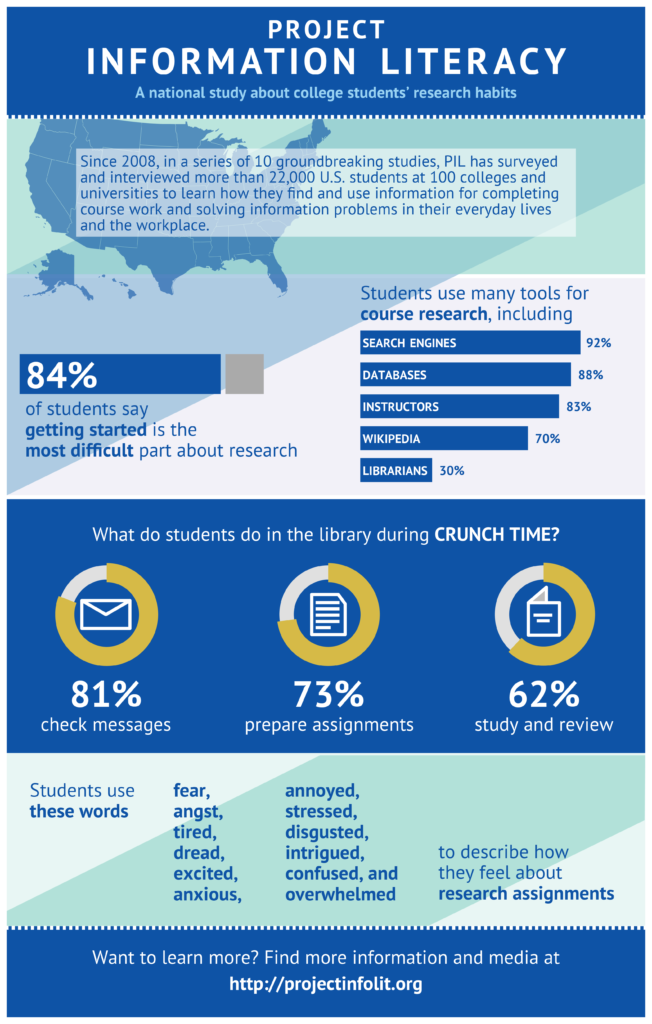RN-BSN Library Guide
Project Information Literacy

What is Information Literacy?

The ACRL Information Literacy Framework states: "Information literacy is the set of integrated abilities encompassing the reflective discovery of information, the understanding of how information is produced and valued, and the use of information in creating new knowledge and participating ethically in communities of learning."
Framework for Information Literacy document
Companion document-Science, Technology, Engineering, and Mathematics
Information literacy is today’s “4th R” of basic literacy, complementing the “readin’, ’ritin’, and ’rithmetic” of the early days of American education with “retrieval”—it is a survival skill for the Age of Information. The ability to access, manage, and utilize information to make decisions and solve problems is a necessary competence for effective participation in the 21st century.
Some measure of learner self-reliance is a fundamental assumption of distributed learning. In a world of infinite information, self-reliance in accessing and managing appropriate information is a daunting challenge. Competence in navigating the complex universe of information for both learning and work requires information literacy.
Marcum, J. (2004). Information literacy. In Encyclopedia of distributed learning. Thousand Oaks, CA: Sage Publications. Retrieved from www.credo.com
Information Timeline

Information Timeline Graphic by adstarkel. Used under CC BY-NC-SA 2.0
Considering Information Literacy
Information literacy is the set of integrated abilities encompassing the reflective discovery of information, the understanding of how information is produced and valued, and the use of information in creating new knowledge and participating ethically in communities of learning.
As the American Library Association Presidential Committee on Information Literacy(January 10, 1989, Washington, D.C.) says “Ultimately, information literate people are those who have learned how to learn. They know how to learn because they know how knowledge is organized, how to find information, and how to use information in such a way that others can learn from them. They are people prepared for lifelong learning, because they can always find the information needed for any task or decision at hand.”
Information literacy forms the basis for lifelong learning. It is common to all disciplines, to all learning environments, and to all levels of education. It enables learners to master content and extend their investigations, become more self-directed, and assume greater control over their own learning. An information literate individual is able to:
- Determine the extent of information needed
- Access the needed information effectively and efficiently
- Evaluate information and its sources critically
- Incorporate selected information into one’s knowledge base
- Use information effectively to accomplish a specific purpose
- Understand the economic, legal, and social issues surrounding the use of information, access and use information ethically and legally
